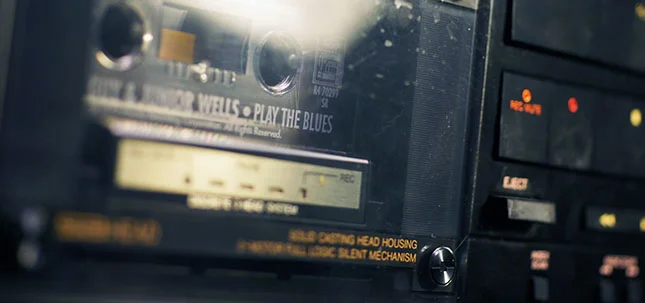You Don't Know Sonny Bono
Sonny Bono died 20 years ago today. If you’re a rock and roll fan, you should care. If you love a good American bootstraps story, you should care. And if you’re looking for an inspirational story of persistence, he’s your guy.
Cher once summed up her many contributions to an interviewer by explaining, "I'm a part of history whether people want to take it seriously or not." While this is a very Cher attitude, it’s a statement that reflects right back on the person who put her in the spotlight in the first place.
I have been a Sonny & Cher fan nearly my whole life. Don’t remember how it started, but I’ve always been mesmerized with Cher-- and her years with Sonny are no exception. Only as I’ve gotten older, started working on my own career, and learned more and more about rock history have I noticed what a compelling personality Sonny Bono was. Popular opinion of him, however, doesn’t always treat him with the same respect.
He spent a large part of his career making himself a punchline on the quest to success, but his career-- careers, rather-- are far from jokes. More important than the work he did was the way he approached it.
I keep a bumper sticker from his first mayoral campaign in my office. Its simple slogan says, “It’s time!” Becoming mayor was just one of many things Sonny just did because he wanted to. He always wanted to be an entertainer, so he became one. He ran for mayor because he was fed up with bureaucracy and wanted to do something about it. It was time to do something, and he did it. And the one thing that never got in his way was whether or not people thought he should be there.
Note: this is not my office, but rather a screenshot of the same sticker in the music video for The Dead Milkmen's "Punk Rock Girl."
In 1992, before he became a Congressman, he told The Los Angeles Times something I always think about when I’m in a situation of self doubt:
“What is qualified? What have I been qualified for in my life? I haven’t been qualified to be a mayor. I’m not qualified to be a songwriter. I’m not qualified to be a TV producer. I’m not qualified to be a successful businessman. And so, I don’t know what qualified means.”
Cher is so much more than the Cher created by Sonny, but few care that Sonny is so much more than the counterpart to Cher. I need a place to put my knowledge of Sonny Bono, which is why I started a music blog, right? I’ll be skipping the meat of the Sonny & Cher story-- all of that is well-documented, from the albums to the movies to the TV shows, and most notably, the divorce.
Sonny, Phil Spector and Darlene Love in Gold Star Studios in Los Angeles, 1963.
Here’s a sampling of some sweet Sonny Bono knowledge that might help you at a trivia night some day:
- Before he was Sonny of Sonny & Cher or even Phil Spector’s right hand man, Sonny worked for Specialty Records writing and producing songs for Sam Cooke, Larry Williams, and Little Richard, the biggest names of the R&B label’s roster, all before he turned 25.
- Sonny donated the studio time at Gold Star Studios necessary for Dr. John to create his first album, Gris-Gris. He also personally championed the unconventional album once it was finished, leading to its major label release on Atlantic.
“I’ll always be grateful to him for that,” Dr. John told the San Diego Union-Tribune this summer.
- Working with Dr. John was not Sonny’s only connection to New Orleans music: his main collaborator Harold Battiste, Jr. was a noted saxophonist from New Orleans. Battiste’s jazz background contributed a lot to the somewhat unusual pop sounds of Sonny & Cher. Harold, Sonny, and future film score composer Jack Nitzsche created a complex, jangly, and offbeat soundscape that matched the unique and unexpected combination of Sonny’s high-pitched nasally voice and Cher’s straightforward alto sound. Battiste later went on to work as the musical director on Sonny & Cher’s television shows.
- It is fairly well known that Sonny & Cher sang backup on many Phil Spector hits like “Be My Baby” and “You’ve Lost That Lovin’ Feeling,” and if you listen closely, you can hear both a bellowing Cher and Sonny’s nasally edge peeking through the fabric of the Wall of Sound on many tracks. Working as Spector’s assistant is where Sonny honed his pop arranging and producing chops. Legend has it that he was fired from his position after telling Spector what we all were thinking: rehashing the same sound was sounding stale.
- The same year that “I Got You Babe” briefly eclipsed “Satisfaction” on the charts, The Rolling Stones also recorded a Sonny Bono song, “She Said Yeah,” on Out of Our Heads. When the Stones came to the United States on their first tour, they slept on Sonny & Cher’s floor.
- A Stones cut was not Sonny’s only brush with British Invasion fame-- The Searchers turned his song “Needles & Pins” into a hit in 1964. The oft-covered song also has versions by The Ramones, Tom Petty and the Heartbreakers with Stevie Nicks, Jackie DeShannon, and of course, Cher.
- The fact that Sonny had an acting career at all is more impressive than any critical discussion of his on-screen work, but there are still some bright spots. Mary McCray, a.k.a. Cher Scholar, gives a good rundown of his TV work during his rocky post-divorce years here. (Although I have to say, I recently watched Escape to Athena and found it solidly enjoyable. After all, it is Shaft and Sonny Bono killing Nazis led by two former James Bonds. Recommended.)
- Most of Sonny’s main contemporaries (except for Cher, but that’s another post for another day) from former bosses, collaborators, and artists he worked with are members of the Rock and Roll Hall of Fame-- even his godson Anthony Keidis. Phil Spector, Darlene Love, The Ronettes, Carole King, Gerry Goffin, Leon Russell, Art Rupe, Dr. John, Sam Cooke, Little Richard, Hal Blaine-- the list goes on. I’m not arguing that Sonny belongs in the Hall of Fame anytime soon, but he was working directly alongside titans of popular music and still isn’t seen as any type of a figure in rock history.
- The Palm Springs International Film Festival going on right now? Sonny started it as mayor in one of many moves he made to position the city as a serious cultural player.
- Sonny remains the only member of Congress to ever have a #1 hit single. (Sorry, John Hall. You only got to #6.)
Sonny & Cher with Harold Battiste in 1970. Credit: The Historic New Orleans Collection.
All of these accomplishments aren’t necessarily career-defining, history-transforming, earth-shaking things on their own. But what makes Sonny interesting to me is that he wasn't a natural born talent. Enthusiastic and driven, yes, but intrinsically talented, no. He relied on his determination.
“‘’People underestimate me, but I’ve always been a stretch runner. If people would take a look — and I don’t mean this arrogantly — if they would take a look at what I’ve done in my life, you can’t be a dummy and have the achievements I’ve had in my lifetime.’’”
His odd-sounding voice was a punchline. His height was a punchline. His nose, his hair, and his clothes were all punchlines. As Cher’s star rose post-divorce, his social status was a punchline. The very idea that he was running for office was a punchline, and so on. He realized that a self-effacing approach was the key to keeping himself relevant. And that didn’t always work out, if his on-screen career is any indication.
Sonny & Cher Comedy Hour, September 1972
It’s so much more romantic to tell a show business story of pure talent, of someone with a skill or a calling that required them to be in the spotlight even if they weren’t drawn to the show business life or were too simple to be a star. They probably made contributions from sheer skill, with some elbow grease mixed in. Discussions of them are about how much their voice or music impacted society, and their pure talent legitimizes nearly anything they produce. This is not the case with Sonny Bono.
Charlie Greene, Sonny & Cher’s manager during their early stardom in the 60’s who left the duo in a less-than-amicable split, recapped this phenomenon when asked about Sonny by Rolling Stone in 1973. This is as Sonny & Cher were bouncing back from a steep decline and rising into a new spotlight as television stars and Vegas regulars.
“I got to hand it to the mother-fucker for continuing to have perseverance on an overabundance of a lack of talent,” Greene said.
As a fan, I think Sonny’s voice adds an interesting dimension to his records and blends beautifully with Cher’s. I also think he was a strong and innovative arranger and a very underrated pop songwriter. So while I don’t subscribe to any prevailing notion that he was wholly untalented, I still recognize where people are coming from. There are many people better or more prolific at what Sonny was trying to do, but he didn’t let that stop him.
This is not to say Sonny was some sort of martyr. He made some shady business deals as a performer (including, but not limited to, keeping a ton of money from Cher in an entity called “Cher Enterprises” that she did not discover until their divorce proceedings) and plenty of unpopular decisions as a politician (once a Lyft driver broke down the ramifications of Sonny banning popular Spring Break activities in Palm Springs as mayor and luckily dropped us off before he could weigh in on the copyright extension act bearing Sonny’s name). Sonny became a Republican and good buddies with Newt Gingrich, after all. Not the most rock and roll ending.
Sonny Bono wins his mayoral bid in Palm Springs in 1988. Photo © The Desert Sun.
The New York Times obituary for Sonny touched on him walking this fine line of punchline vs. person, saying that he “almost prided himself on never being taken, or taking himself, very seriously,” emphasis mine. The almost is where I think public opinion collides with what Sonny was actually doing: when he’s questioning Janet Reno about the use of excessive force in Waco, is he still just almost serious? He wasn’t only almost a hit songwriter, or almost a Congressman, but somehow he’s seen as only almost an important figure.
The same obituary ends with a quote from Sonny, asking how he would like to be remembered:
''As someone who is his own man, a maverick and really a person of substance like other people,” he said, adding, “Not necessarily the brilliant person, but recognize that there is substance there, you know.”















